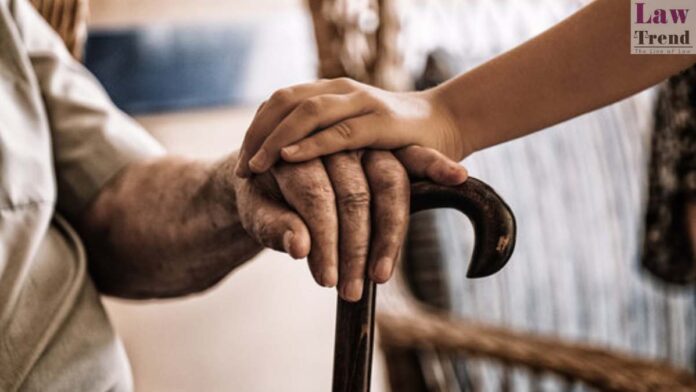India as a country holds a very young population structure, with a significant portion of the population below the age of 25 and a high percentage below 35. It can be said that the policies of the country have been significantly influenced by this fact and are often implemented keeping in mind this demographic dividend. Coming to this side of the age rope, individuals aged 60 and above in India has 8.6% of the overall population translating to about 104 million. Multiple studies predicts that this ratio is further expected to be 12% by 2030 and 19.5% by 2050.
Elderly care, also sometimes referred to as senior care or geriatric care, refers to the services and support provided to older adults who may need assistance with daily living activities or managing their health. This write-up discusses what is the current situation of geriatric care in India. In addition to it, it also reflects upon the existing policies, provisions and jurisprudence pertaining to this issue while highlighting the gaps in the actual implantation.
Before proceeding further into the issue in hand, it is imperative to understand the legislative protection available to this vulnerable section of the society along with schemes that are available for the benefits of the elderly population in India.
There are series of legislations that are in place for protection and support of senior citizens. The apex court has stated in the case of Dr. Ashwani Kumar v. Union of India (2018) that there is dire need to revamp the schemes to avoid multiplicity of schemes and stated that right to health of elderly derives its life and breath from article 21 and they have the right to live with human dignity. Article 41 of the Constitution of India provides a direction to the state to provide effective provisions for securing the right to work and public assistance in cases of old age. Article 46 states about the state’s role in protecting the economic interests of the weaker sections, which includes the elderly section of the society. In addition to the constitutional provisions, The National Policy on Older Persons, 1999 and The Maintenance and Welfare of Parents and Senior Citizens Act, 2007 is a crucial piece of legislation that ensures the financial security and well-being of elderly parents and senior citizens. Besides this legislative framework Indian government offers various concessions and benefits for senior citizens such as Atal Vayo Abhyudaya Yojana (AVYAY), Scheme of Integrated Program for Senior Citizens (IPSrC), State Action Plan for Senior Citizens (SAPSrC), Senior Citizens’ Welfare Fund and many others.
One may wonder when the State has such splendid number of schemes and facilities available for this vulnerable section of the society then where does the problem arises. The biggest issue that the elderly face is medical and health related issues. There are many schemes such as The National Programme for the Health Care for the Elderly (NPHCE), National Policy on older Persons (NPOP) etc. however, the maximum care that is provided to the elderly is by caregivers, where the maximum of them are unqualified and untrained.
As mentioned above there are numerous schemes and social initiatives that are being run by the government as well as private entities. There are many schemes which are being introduced and will be formulated in the future for the benefit of the people who are in dusk of their lives, however, the awareness of these schemes is very less between the people who need them the most. A solution to this problem can be Digital Literacy Initiatives, which can promote digital literacy among the elderly population and consequently it can empower them to access online resources and services and initiatives offered by the government.
Human body at this juncture of age becomes susceptible to infirmity and diseases. Geriatric mental health, is one of the issues that is often neglected. The issue of mental health is often going unreported due to the heavy stigma is attached to emotional wellbeing concerns especially amongst the senescents’. A study reported that over 60% of seniors feel lonely and depressed, highlighting the extent of this issue. There are no specific provisions or schemes to combat this underlying massive issue.
Also Read
While experiencing some development, the senior care sector in India faces challenges in terms of organization and sufficiency. This can present difficulties for many aging citizens. Insufficient pension provisions may lead to financial hardship, hindering access to essential medications. Additionally, the exponential rise in healthcare costs can deplete personal savings and place a significant burden on families. Furthermore, overcrowded healthcare facilities and a lack of specialized geriatric care contribute to a negative cycle of declining health outcomes. India’s senior care system suffers from significant shortcomings, leading to social isolation among the elderly population. This isolation fuels a concerning rise in loneliness and a decline in mental well-being. Furthermore, the abysmal state of care facilities, with less than 2% meeting even basic quality standards, underscores the systemic failures within this sector. A nation cannot be considered truly progressive when its most vulnerable citizens, their senior population, are left to deteriorate in such conditions.
Article By
Ms. Yukti Kumar, Assistant Professor at RV University, Bangalore




